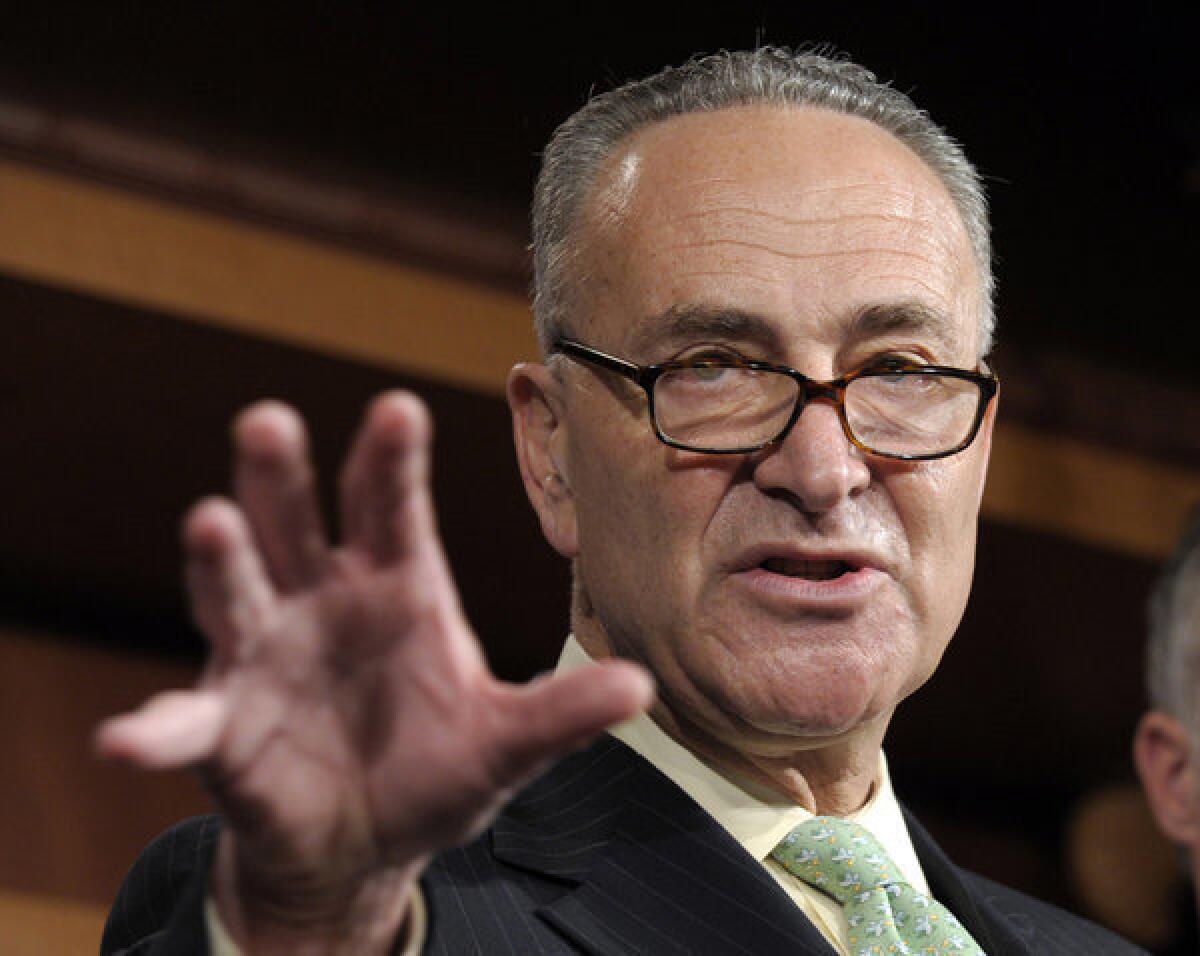Labor and business leaders clear hurdle in immigration talks

WASHINGTON – Labor and business leaders have agreed to a plan for setting wages for low-skilled immigrant workers, possibly ending a scuffle that delayed negotiations in the Senate over a sweeping plan to overhaul the country’s immigration system and create a pathway to citizenship for the estimated 11 million illegal immigrants in the country, officials involved in the talks said.
Senators drafting the bill are reviewing the compromise, worked out Friday by representatives from the U.S. Chamber of Commerce and the AFL-CIO, and have not yet decided to include it in their bill, the officials said.
But the breakthrough may put the bipartisan group of eight senators back on track to unveil a bill soon after Congress returns from a two-week recess on April 8. Sen. Charles E. Schumer (D-N.Y.) said in a statement that the negotiators are now “closer than we have ever been.”
IN-DEPTH: U.S. farmers, guest workers pay a price to stay legal
The Chamber of Commerce and the AFL-CIO were asked by the senators in December to design a guest worker program that would satisfy labor shortages in the U.S. while still protecting workers rights.
A row between negotiators flared up last week over how much to pay immigrant workers. The impasse threatened to derail the talks and caused the senators to push back plans to finish writing the bill by the end of March.
Labor leaders wanted to ensure that the salaries of foreign workers would not decrease the wages of Americans doing the same job in the same part of the country. The chamber was concerned that if employers were required to pay higher wages, businesses would not use the program and would continue to hire illegal immigrant workers.
After heated discussions this week, the two sides agreed to that employers would pay actual wages paid to American workers or the prevailing wages for the type of job, whichever was higher. The Bureau of Labor Statistics determines prevailing wages based on city, experience and training.
According to the plan, the new visa program would be run by a professional bureau at U.S. Citizenship and Immigration Services. The number of visas issued each year would be determined by a formula based on job demand, unemployment numbers and other data.
No more than 200,000 visas could be issued each year for low-wage jobs such as housekeeping and landscaping.
If the senators don’t agree to the proposal, labor and business leaders will have to go back to the negotiating table.
“Ultimately, the final decisions will be made by the senators involved,” Randel Johnson, senior vice president for labor, immigration and employee benefits at the U.S. Chamber of Commerce, said in a statement.
IN-DEPTH: U.S. farmers, guest workers pay a price to stay legal
More to Read
Get the L.A. Times Politics newsletter
Deeply reported insights into legislation, politics and policy from Sacramento, Washington and beyond. In your inbox three times per week.
You may occasionally receive promotional content from the Los Angeles Times.











